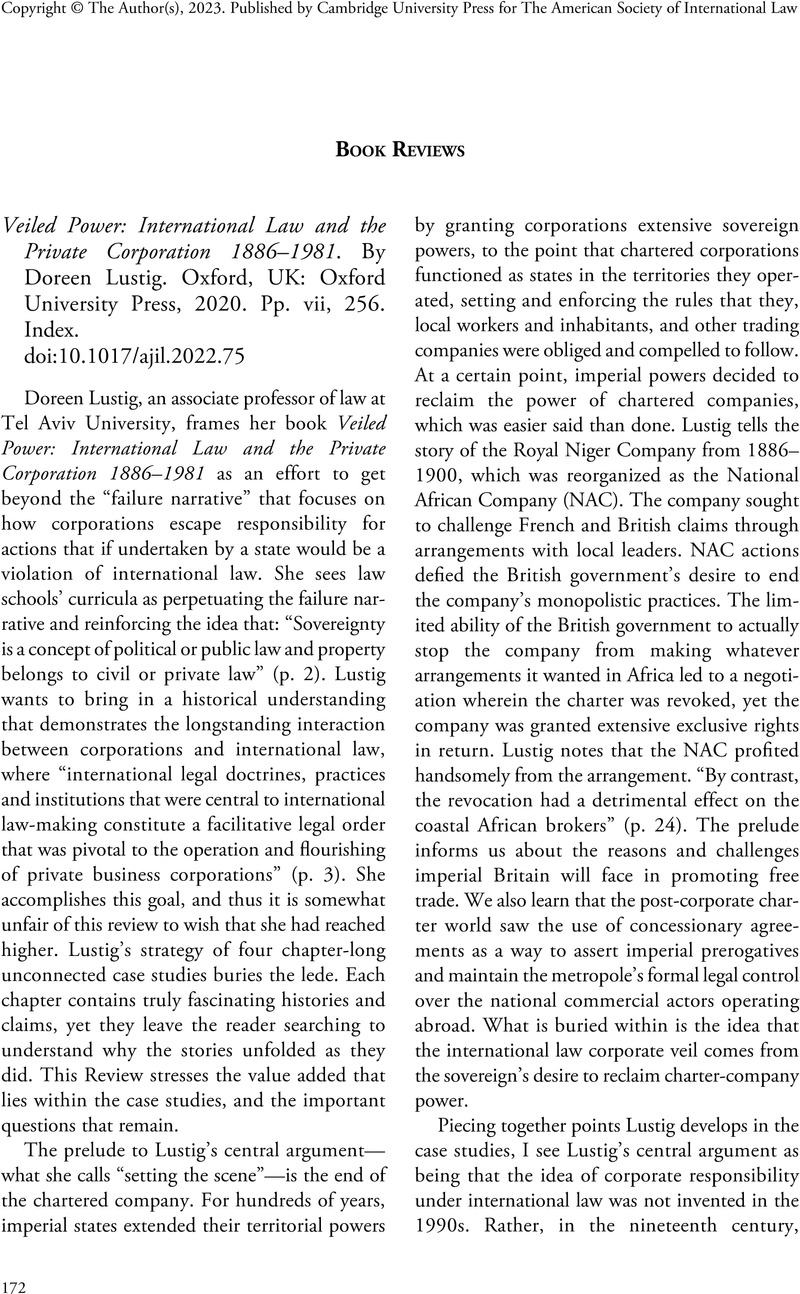No CrossRef data available.
Article contents
Veiled Power: International Law and the Private Corporation 1886–1981. By Doreen Lustig. Oxford, UK: Oxford University Press, 2020. Pp. vii, 256. Index.
Review products
Published online by Cambridge University Press: 25 January 2023
Abstract

- Type
- Book Reviews
- Information
- Copyright
- Copyright © The Author(s), 2023. Published by Cambridge University Press for The American Society of International Law
References
1 Whereas domestic corporate veil arguments are focused on whether corporate shareholders become liable for actions taken by corporate leaders, the international conversation extends to whether corporations are also bound by international law. This question arises because international law assumes that states will police corporations, yet many states lack the power or the will to hold corporations accountable for their overseas behavior. Soon I will discuss Lustig's case study where the Liberian government worked as an agent of the Firestone Corporation. The Liberian government could have arguably made a different type of arrangement with Firestone, and thereby avoided violating international law. But in areas of limited statehood (a more benign term than “failed state”), governments may be unable to police, curb, or punish foreign corporate behavior. The investment-receiving state cannot hold a corporation accountable, and investment exporting states choose to extend the corporate veil to actions undertaken abroad.
2 Lustig actually splits the blame between the American free slaves who colonized Liberia and Firestone, as both carried forward the American tolerance for racialized subjugation (pp. 30–31).
3 The inability of League officials to stop forced labor in the Mandate territories is discussed in Susan Pedersen, The Guardians: The League of Nations and the Crisis of Empire (2015). See the book's index for the many places where the problem of forced labor reappears.




